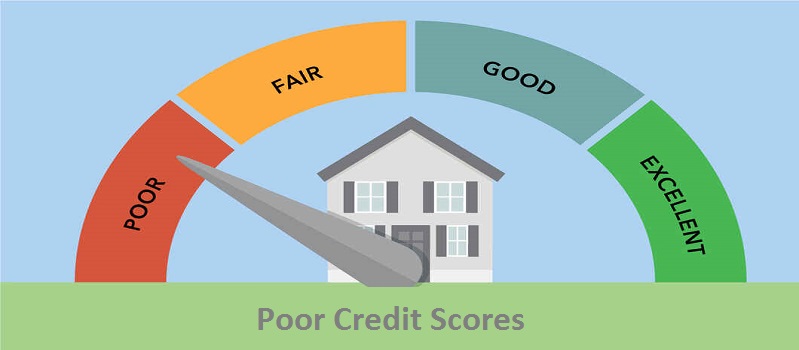You might think saving enough money to buy a house is hard. But if you have a good plan for saving money, anyone can save enough money for a down payment on the house of their dreams.
In fact, you may already have more of the money you need for a down payment than you realise, even if you don’t know it. If that’s not the case, there are a few simple things you can do to make it easier for you to save up for a house down payment.
Here, we’ll talk about different ways to save money for a future down payment on the home of your dreams. Also, you can apply for home loans in Belfast to buy one or use these tips to get a head start on saving for your future down payment, whether you are just starting to save money or if you already have some money saved up.
Ways To Save For A House
1. Build A Better Budget
The first thing you need to do to save money is to make a budget. You can’t save money for a down payment if you don’t know where your money goes every month and can’t keep track of it.
Your spouse or partner will also contribute to your down payment, including their income. This shows your financial position. Next, get your credit card and bank statements. Check the places where you’re spending the most money.
Make sure you track how much you spend on things like your rent, student loan payments, and utilities. Then you should think about how much you spend each month on things that aren’t necessary.
If you’d rather not figure out how much you’re spending on your own, you can use a budgeting tool to help you do it automatically. If everything still seems too hard for you to handle, a financial counsellor can help you see how your budget should be set up.
2. Reduce Or Cut Out A Bad Habit
It is possible to save hundreds of pounds over the course of a year just by giving up or drastically cutting back on one bad habit.
If you shop on a whim, either in person or online, you should reduce how often you do this.
If you don’t want to have to keep checking your email for deals, try to stop getting marketing emails. You’ll save money and avoid clutter.
3. Ask For A Raise
When you get paid, do you not have much left over to save? It might be time to ask for a raise. Timing is everything, and the single most important thing you can do to set yourself up for success is to time your pay talk right. If you’re working on a hard project or don’t have much time, you should never ask your manager for a meeting.
If you want to ask for a raise, the best time to do it is during your annual performance review. You can also ask for a raise in the weeks after finishing a big project well.
Never argue about your pay unless you’ve done your research first. Get information about how the projects you’ve worked on have performed and what the results were. How you act during the meeting where you talk about your pay is just as important as what you say.
Keep your confidence in what you’re asking for and show that you’re thankful and interested. Tell your boss that you want to grow with your company and that you’re ready to take on more responsibilities as your career moves forward.
4. Pay Off Your Debts
It might seem counterintuitive to pay off your debts with any extra money you have while also trying to save for a house. But one of the first things lenders looks at when deciding whether or not to give you a mortgage is how much you spend each month compared to how much you make each month.
If you have a lot of debt, it will be much harder for you to get a job. This could mean you have to pay a bigger down payment up front and more interest each month.
Before applying for a mortgage, like doorstep loans like provident or cash loans, reduce your debt. Look at how much you owe on your credit cards, student loans, personal loans, and auto loans, and come up with a plan for paying off the money you owe.
5. Rent Out Extra Space
Is there a spare room in your apartment that you could use? If you do, you might want to list it on a site that helps people find places to stay.
You can pre-approve the dates and the guests and choose only to rent out your extra room when it works for you. You can even book certain dates ahead of time so that a friend or family member visiting you won’t be able to use your rental.
6. Ask For Help
When you’re trying to save up for something as important as a down payment on a house, it’s not embarrassing to admit that you need help. People who want to buy their own homes are increasingly using websites and mobile apps to raise money for their down payments.
You could suggest to your family and friends that they give you money instead of a physical gift for holidays and other special occasions. This has become more common at weddings, baby showers, and other social events in recent years.
It’s important to keep in mind that you can only use gift money for your down payment if you follow certain rules. Before accepting money for a down payment on your new house, you should learn about the different mortgage loans—also, the rules about gift money and down payments.
Conclusion
When planning how to save money for a house, it’s important to be smart about it because the process is both time-consuming and stressful. The tips in this article will help you learn how to save money for a house as quickly as possible.
If you try these ways to save, you should see the money in your savings account grow pretty quickly.

Emma Anderson is a financial advisor at Quickloanslender who always believes in researching hard to know her clients’ financial problems. She takes the time to understand their financial wants and needs to write the blogs on them as the solutions. In her long 14 years of experience, she has written plenty of blogs on the financial and business sectors of the UK.
Emma Anderson has been recognised for her work in financial planning and her blogs are regularly published in the website of Quickloanslender. As far as her educational qualification is concerned, she has done Masters in Accounting and Finance, and done PG Diploma in Creative Writing.






